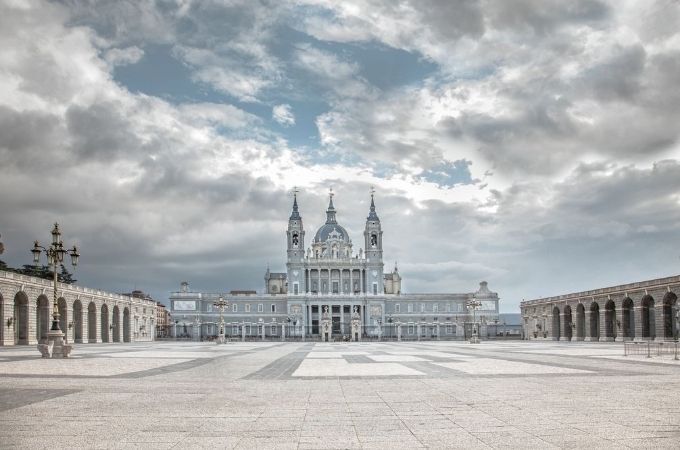Whatever holiday you celebrate
Whether you celebrate Christmas or the Jewish tradition of Hanukkah, or some other event, exchanging gifts is a custom throughout the year in many cultures. There is hardly anyone who doesn’t appreciate receiving a gift, sometimes it can be tricky to get the right gift, especially when the receiver is from another part of the world.

Germany
- Gifts are opened right away upon receiving.
- When giving flowers, make sure that they come in uneven number (except number 13 which is considered bad luck). Flowers should be wrapped in craft paper or cellophane.
- If you visit someone’s home, it is polite to bring something. Many Germans will appreciate a basket with beer and delicious snacks.
- Don’t send red roses to your business partners or colleagues since they are considered romantic. Carnations are reserved for mourning whereas lilies and chrysanthemums are funerary flowers.
- Avoid giving personal items and toiletries as gifts or something too exotic. Many Germans are very conservative.
- It is quite common to give a birthday card along with the gifts.
- Never wish someone a happy birthday or give a gift before the actual birthday ( it is considered bad luck).

Italy
- Gifts are usually opened at the time they are received.
- If you are invited to someone’s home, bring some gift-wrapped chocolates or flowers.
- Avoid giving an even number of flowers. Chrysanthemums are reserved only for funerals. Moreover, red roses are meant for romantic occasions.
- Avoid such gifts as brooches, handkerchiefs and knives, since they are associated with sadness. Giving a perfume as a gift is not a good idea as well since it gives a message that you stink.
- Do not wrap gifts in black paper, traditionally it is a colour of mourning. Purple is also believed to be a symbol of bad luck.
- Most of the Christmas gift-giving happens on the Epiphany day. The 12th day of Christmas, Epiphany is the day when three wise men arrived at the manger bringing gifts for the Baby Jesus. As the story goes, the three wise men stopped by the abode of La Befana, a witch. She was invited to join them but refused and later changed her mind and set out to find the Christ child. According to legend, she is still searching. Everywhere she visits, she leaves gifts for the children in hopes of finding the Baby Jesus. Children hang their stockings on the evening of January 5, expecting gifts from La Befana. She carries a sack of presents on her back, ready to distribute to well behaved children. It used to be like that some time ago and still is in the south of Italy. Nowadays it is more common that gifts are exchanged either on December, 24 at midnight (La Vigilia) or on Christmas day.

France
- Gifts are usually opened when received.
- Flowers should be given only in odd numbers, the bouquet of 13 flowers should be avoided as well as white chrysanthemums or lilies since they are reserved for funerals. Yellow flowers symbolize infidelity while red carnations symbolize bad will.
- Christmas customs in France vary from region to region. A Nativity scene used to be found in most of French homes during the Christmas time but now only few follow this tradition. It served as the focus of the Christmas celebrations and was filled with little clay figures, little saints. On Christmas Eve children place their shoes by the fireplace in hopes that Santa Claus will leave gifts for them.
- In some eastern and northern France, December 6th is Saint Nicolas Day when parents give their children gifts instead of Christmas Day which is more for family dinner and religious services.
- If you have been invited to someone’s home, a small gift will be appreciated but better not to bring a gift of wine since the host prefers to make the evening’s selection. It is really good manners to send a thank-you note to your host the next day.
- Holidays cards are very popular, especially as an expression of thanks to someone.

The United Kingdom
- In the UK, it is rude to open a gift straight away unless the giver asks you to do so.
- Avoid anything that is overly expensive since it is considered in a bad taste because it would make the receiver feel embarrassed and obliged to buy you a gift of equal value.
- There are more lottery tickets purchased and given as gifts in the U.K. than anywhere else in the world.
- Lilies and carnations are reserved for funerals.
- If you are invited to someone’s home, a small gift like a bottle of wine, a box of chocolate or potted plant will be appreciated.
- British Christmas dining tables will feature a tubular decoration by each plate. When pulled apart, these Christmas crackers issue a load snap before spilling out a colorful crown, a small toy and a joke.

Scotland
- In Scotland, the New Year celebrations or Hogmanay take precedence over Christmas. The gift-exchange tradition of Hogmanay is done to bring good luck to the home. Hogmanay comes with its own unique set of rituals, one of which is called “First footing”. The first person over the threshold has to come baring a set of gifts: Whisky, a black bun, shortbread and a lump of coal. Tradition says that the person coming over the threshold should be a tall, dark man. This superstition goes back to the Viking Invasion, so a big blonde man is sure to bring bad luck.

Switzerland
- If you receive a gift in person, it is customary to smile and thank the person but open the gift later. If you receive it by post, it is polite to call the giver and thank. It is very polite to send hand-written thank you notes but nowadays kind words will be accepted also by mail or by call, it depends on the proximity and connection with the person.
- If you are invited to someone’s home, a small gift (a box of chocolate, a bottle of wine or flowers) will be appreciated. If there are children in the house, make sure to bring something small for them
- Godparents in Switzerland traditionally gave as a gift for birth or christening a golden bracelet, a set of baby cutlery or they opened a bank account for the baby and paid a certain amount into it every month or year. A nice custom for godparents also was to decorate the christening candle (photo in the albums. Some people still follow this tradition. In old days, a godparent gave a piece of silver cutlery to every occasion: birthday, Christmas and so, and the set was usually complete at the confirmation and was used as ‘dowry’.
- For the weddings the best gift is to give money to the couple or just to follow the list of gifts given by the couple.
- Scissors, Cutlery or other sharp objects should not be given as they symbolize severing of the relationship or bad luck with the exception of the Swiss knife which is considered as an “initiating” gift for an adolescent who likes to do some outdoors activities .
- Avoid giving expensive gifts, it can be seen as tacky and vulgar.
- Red roses and carnations are symbols of romantic intentions while lilies and chrysanthemums are usually reserved for funerals.

Spain
- If you receive a gift, you should open it immediately in front of the giver. Make sure that gifts are beautifully wrapped.
- If you are invited to a Spanish home, it is very polite to bring some chocolate, dessert , a bottle of wine or flowers but flowers are usually reserved for special occasions only and should be in odd number and not 13 which is considered unlucky. If the host has children, the small gifts for them will be appreciated. Do not give dahlias, chrysanthemums, white lilies, or red roses.
- Christmas in Spain is considered a deeply religious holiday and time to celebrate with family. Christmas celebrations start on December, 8 with the feast of the Immaculate Conception, honouring their patron saint the Virgin Mary. Though the Christmas Day is traditionally not the time to exchange gift, it became popular among some families. Spanish people usually wait for the feast of the Epiphany or Three Kings’ day to exchange gifts. On New Year Spanish have a tradition to eat twelve grapes when the clock strikes midnight, one grape with each stroke of the clock. The gifts are exchanged on January, 6th, the Epiphany.
- Avoid giving personal items to someone who is not very close to you.
- For Spaniards, the best wedding gift is money.

Russia & Ukraine
- Gifts are not usually opened just right away but it depends on the situation and proximity to the giver. It is quite normal to open the gift in front of the giver if the latter insists on it.
- If you are invited to someone’s home, it is very appreciated to bring a bottle of wine, some chocolates , pastries or flowers. If there are kids, it is expected to bring something small for them as well.
- Christmas in Ukraine and Russia is celebrated on the 7th of January according to the old ‘Julian’ calendar. The gifts are usually exchanged on January, 1 in the morning after the long New Year’s Eve celebration. Gifts are not very common for Christmas.
- Gifts for birthdays are never given before the actual birthday, it symbolizes bad luck.
- The flowers are always given in odd numbers, the even number for flowers is reserved for funerals. Yellow flowers usually symbolize separation, the end of the relationship while red carnations are reserved for mourning and ceremonial services.
- Traditionally, weddings are celebrated for 2 days and it is common to give money to the couple.
Photography Credits
Julia Wimmerlin
Switzerland
Learn more about Etiquette
For information on Etiquette training and Luxury Training,
please visit the link below